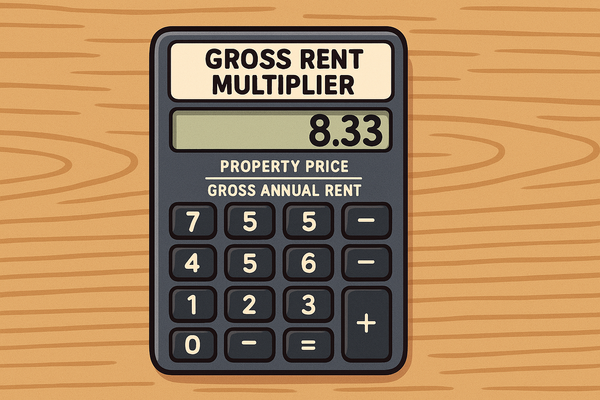Delaware Squatter's Rights Guide: 2025 Laws, Active Cases, and Property Protection Strategies
Delaware continues to follow its outdated, traditional adverse possession framework, making vigilance by property owners even more critical.

For property owners in Delaware, understanding squatter's rights laws is essential to protecting your real estate investments. With a required 20-year continuous occupation period and several high-profile cases recently making headlines, the First State offers important legal protections—but also creates significant vulnerabilities for absentee property owners.
Interesting Note: In a shocking 2023 Delaware case, a property owner lost $125,000 worth of beachside property to his neighbor who had maintained a goat pen on his land for over 20 years, demonstrating the very real financial consequences of Delaware's adverse possession laws.
Key Takeaways
- Delaware requires squatters to occupy property continuously for 20 years before they can file an adverse possession claim
- Unlike many states, Delaware does not require squatters to pay property taxes to make valid adverse possession claims
- The "HOSTILE" framework (Hostile, Open, Secure, Taxable, Improved, Long-term, Exclusive) defines requirements for adverse possession
- Delaware courts have consistently upheld adverse possession claims when all requirements are met, including a recent $125,000 property transfer
- Regular property inspections and security measures are the best prevention against potential squatter claims
- Delaware's approach requires a longer occupation period than most states, but lacks some property owner protections found elsewhere
Understanding Delaware Squatter Rights in 2025
In Delaware, squatting itself is not legal, though squatters have historically had certain rights through the doctrine of adverse possession. This legal principle allows individuals who occupy abandoned or neglected property without permission to potentially gain legal ownership after meeting specific conditions over a designated period.
The distinction between squatting and trespassing becomes important in determining how law enforcement can respond. While trespassing is a criminal offense involving unauthorized entry, squatting typically involves someone living on a property for an extended period without authorization, which Delaware courts have historically treated primarily as a civil matter requiring formal legal proceedings to resolve.
What makes Delaware's squatter laws particularly noteworthy is that they haven't undergone the significant legislative changes seen in states like Florida (HB 621) or Alabama (HB 182), which have recently implemented more property owner-friendly statutes with criminal penalties for squatters. Delaware continues to follow its outdated, traditional adverse possession framework, making vigilance by property owners even more critical.
Download the existing Delaware Squatters Rights Law as it stands today:
Delaware Adverse Possession Requirements
For a squatter to claim legal ownership through adverse possession in Delaware, they must satisfy five stringent requirements:
Hostile/Adverse The occupation must be without the owner's permission and against the owner's property rights. In legal terms, "hostile" doesn't imply aggression but indicates unauthorized occupation.
Actual The squatter must physically occupy and use the property as a true owner would, including maintaining it, making improvements, or otherwise demonstrating actual possession.
Open and Notorious The occupation must be visible and obvious to anyone who might observe the property, including the rightful owner. This prevents hidden or secretive occupation from qualifying for adverse possession.
Exclusive The squatter must have exclusive control over the property, preventing others from occupying it and not sharing possession with the rightful owner.
Continuous The squatter must occupy the property without interruption for the full 20-year statutory period required in Delaware. Any significant break in occupation resets the clock.
Unlike some other states, Delaware does not explicitly require squatters to have paid property taxes or obtained "color of title" (some document that appears to give them ownership) to make a successful adverse possession claim. This represents a significant distinction from states like Florida, where tax payment is a mandatory requirement for adverse possession claims.
The Remarkable Goat Pen Case: A Warning for Delaware Property Owners
The 2023 case involving Burton Banks and his neighbor Melissa Schrock serves as a stark warning about the power of Delaware's adverse possession laws. When Banks, primarily residing in Atlanta and only occasionally visiting his Delaware property, discovered that Schrock had erected a goat pen on approximately two-thirds of an acre of his beachside property in Ocean View, he naturally asked her to remove it.
What followed demonstrates the real-world impact of adverse possession laws. Schrock refused to remove the pen, stating simply, "It's just always been my backyard since I was a little kid." Despite Banks being the legal deed holder of property that had been in his family for generations, Delaware Superior Court Judge Craig Karsnitz ruled in favor of Schrock in February 2023, requiring Banks to transfer approximately $125,000 worth of property to her.
The judge determined that Banks and his spouse had only "occasionally" stayed in Ocean View while primarily living in Atlanta, which made it difficult for them to contest that Schrock hadn't freely used the land for the required 20-year period. This illustrates a crucial vulnerability in Delaware's system: absentee ownership creates significant risk, even when the owner holds clear legal title to the property.
After losing his property and finding himself unable to afford an appeal, Banks expressed his hope that he could "at least warn others" about the risks of not actively monitoring their property—a warning that should resonate with all Delaware property owners.
How Delaware's Approach Differs From Other States
Delaware's approach to squatter rights places it in an interesting position compared to other states, particularly following recent legislative changes across the country. Here's how Delaware compares:
Adverse Possession Timeframes
| State | Required Occupation Period | Tax Payment Required |
|---|---|---|
| Delaware | 20 years | No |
| Florida | 7 years | Yes |
| California | 5 years | Yes |
| New York | 10 years | No |
| Texas | 10 years (3 with deed) | Yes |
| Georgia | 20 years (7 with deed) | Yes |
| Alabama | 10 years (color of title) | Yes |
Delaware's 20-year requirement is among the longest in the nation, theoretically providing significant protection for property owners. However, the absence of a tax payment requirement creates a potential vulnerability that states like Florida, California, and Texas have addressed through their respective laws.
Enforcement Approaches Unlike Florida's HB 621 or Alabama's HB 182, which create direct pathways for law enforcement involvement, Delaware still treats squatting primarily as a civil matter requiring court proceedings. This represents a significant contrast to the emerging trend toward treating unauthorized occupation as a potential criminal matter with expedited removal processes.
States like Florida have established clear criminal penalties for squatting activities, with charges ranging from misdemeanors to felonies depending on the circumstances. Delaware has not yet followed this trend, maintaining its traditional civil approach to resolving adverse possession claims.
How to Prevent Squatters in Delaware Properties
Prevention remains the most effective strategy for property owners. Here are key preventive measures to protect your Delaware property from squatters:
Regular Property Inspections
- Visit vacant properties at least quarterly, or monthly if in high-risk areas
- Hire a property management company to conduct routine inspections if you live far away
- Document the condition of the property with dated photographs
- Maintain landscaping and exterior appearance to show active ownership
Security Systems and Monitoring
- Install visible security cameras and alarm systems
- Consider smart home security that provides remote monitoring capabilities
- Use motion-activated lighting around the property perimeter
- Install sturdy locks, security doors, and window reinforcements
Property Maintenance
- Keep utilities active but on minimum service levels for vacant properties
- Maintain landscaping and exterior appearance
- Collect mail regularly or have it forwarded
- Schedule timed interior lighting to create the appearance of occupation
Documentation and Signage
- Post "No Trespassing" signs prominently on the property
- Maintain comprehensive documentation of ownership
- File property tax records promptly and maintain copies
- Document any improvements or changes to the property
Community Involvement
- Inform neighbors about vacant properties and ask them to report suspicious activity
- Join neighborhood watch programs
- Consider hiring a house-sitting service for extended absences
Professional Management
- Retain a property management company for vacant properties
- Consider short-term rentals if appropriate for your property
- Ensure quick tenant placement to minimize vacancy periods
These preventive measures not only deter potential squatters but also help establish a clear record of active ownership that can prove invaluable if adverse possession claims arise.
Legal Process for Removing Squatters in Delaware
If prevention fails and you discover squatters occupying your property, Delaware requires following specific legal procedures:
Document Ownership
- Gather comprehensive proof of property ownership including deed, property tax records, mortgage statements, and other official documentation
- Take photos and document the unauthorized occupation
- Record dates of discovery and any communication with the occupants
Serve a Notice to Quit
- Provide formal written notice demanding that the unauthorized occupants leave the property
- Include specific deadlines and consequences for non-compliance
- Ensure proper service of the notice according to Delaware requirements
File an Ejectment Action
- If the squatters refuse to leave after receiving notice, file an ejectment lawsuit with the appropriate Delaware court
- This formal legal action establishes your ownership rights and seeks court-ordered removal of the unauthorized occupants
- Be prepared to provide evidence of your ownership and the squatter's unauthorized occupation
Obtain a Writ of Possession
- If successful in court, the judge will issue a writ of possession authorizing removal of the squatters
- This document grants legal authority for law enforcement to remove the unauthorized occupants
- In Delaware, this enforcement is typically carried out by the sheriff or constable
Secure the Property
- Once squatters are removed, immediately secure the property to prevent reoccupation
- Change locks, repair any damage, and implement additional security measures
- Resume regular inspection and maintenance of the property
It's important to note that Delaware law prohibits "self-help" evictions, where property owners attempt to remove squatters themselves through methods like changing locks, removing possessions, or shutting off utilities. These actions could expose you to legal liability despite the squatter's unauthorized status.
Landlord Rights and Responsibilities
As a property owner in Delaware, you have specific rights and responsibilities regarding squatters:
Rights:
- Initiate legal proceedings to remove unauthorized occupants
- Seek damages for property destruction or unauthorized modifications
- Maintain and protect your property from unauthorized entry
- Request law enforcement assistance for criminal trespassing (though this differs from squatting)
Responsibilities:
- Follow legal procedures for removal rather than attempting "self-help" evictions
- Distinguish between squatters and legitimate tenants with legal disputes
- Properly document ownership and unauthorized occupation
- Secure property after removal to prevent reoccupation
Understanding these rights and responsibilities helps ensure that you address squatter situations legally and effectively while avoiding potential liability for improper removal procedures.
Case Studies: Delaware Squatter Situations Resolved
Case 1: The Goat Pen Property Transfer Situation: Burton Banks owned beachside property in Ocean View, Delaware, that he visited only occasionally while primarily residing in Atlanta. When attempting to sell part of his land in 2021, he discovered his neighbor Melissa Schrock had erected a goat pen on approximately two-thirds of an acre of his property.
Resolution: Despite Banks being the legal deed holder, the Delaware Superior Court ruled in favor of Schrock's adverse possession claim in February 2023, requiring Banks to transfer approximately $125,000 worth of property to her. The court determined that Schrock had openly and continuously used the land for more than the required 20-year period while Banks was an absentee owner.
Lesson: Regular property inspection is essential, especially for non-resident owners. Even a seemingly innocuous encroachment like a goat pen can lead to permanent loss of valuable property if left unaddressed for the statutory period.
Case 2: The Hunter's Land Claim Situation: In a 2015 case, the Delaware Court of Chancery considered a claim by a hunter who had used 15 acres of rural property for hunting purposes for over 20 years. The legal owner had rarely visited the property and was unaware of the hunter's regular use of the land.
Resolution: The court awarded ownership of the 15 acres to the hunter, determining that his consistent recreational use met all five criteria for adverse possession in Delaware: hostile, actual, open, exclusive, and continuous for the statutory period.
Lesson: Adverse possession doesn't require residential use or improvements to the property. Even recreational use like hunting can establish a valid claim if all other criteria are met and the legal owner fails to assert their rights.
Case 3: Boundary Dispute Resolution Situation: Two neighboring property owners in Sussex County disputed the boundary between their properties, with one owner claiming adverse possession of a strip of land based on the location of a fence that had been in place for over 25 years.
Resolution: Despite survey evidence showing the legal boundary in a different location, the court ruled in favor of the adverse possession claim, determining that the fence had established a visible boundary that had been respected by both parties for longer than the required 20-year period.
Lesson: Boundary encroachments, even when based on mutual mistake, can lead to adverse possession claims if left unaddressed for the statutory period. Regular surveys and addressing boundary issues promptly are essential preventive measures.
Frequently Asked Questions
General Squatter Rights Questions
Q: What are squatter's rights in Delaware? A: Squatter's rights refer to adverse possession laws that potentially allow someone to claim ownership of property after occupying it openly, continuously, and without permission for 20 years while meeting specific legal requirements.
Q: Is squatting illegal in Delaware? A: Initial unauthorized entry onto property is illegal trespassing, but Delaware treats long-term squatting primarily as a civil rather than criminal matter. Unlike some other states, Delaware has not enacted specific criminal statutes targeting squatters.
Q: How long does someone have to squat on property in Delaware to claim ownership? A: In Delaware, a squatter must continuously occupy a property for 20 years before they can file an adverse possession claim. They must also meet several other requirements for the claim to be valid.
Q: Do squatters have to pay property taxes in Delaware? A: Unlike many other states, Delaware does not explicitly require squatters to pay property taxes to make a valid adverse possession claim, though doing so may strengthen their case.
Prevention and Removal
Q: How can I prevent squatters from occupying my property? A: Regular property inspections, security systems, property maintenance, "No Trespassing" signs, and professional property management are effective prevention strategies.
Q: How do I remove squatters from my property in Delaware? A: You must follow legal eviction procedures, including serving proper notice, filing an ejectment action with the court, obtaining a judgment, and having law enforcement execute the removal.
Q: Can I physically remove squatters myself? A: No. Self-help evictions are illegal in Delaware. Property owners must use legal processes to remove unauthorized occupants.
Q: Can I turn off utilities to force squatters to leave? A: No. Turning off utilities is considered a self-help eviction tactic and is illegal in Delaware. This could potentially expose you to legal liability.
Legal Implications
Q: Has Delaware enacted new laws about squatters similar to Florida's HB 621? A: As of 2025, Delaware has not enacted legislation similar to Florida's HB 621 or other states' recent criminal squatting laws. Delaware continues to address squatting primarily through civil proceedings.
Q: How does Delaware's approach to squatters differ from other states? A: Delaware's 20-year requirement is longer than many states, providing theoretical protection for property owners. However, Delaware lacks additional requirements like tax payment and hasn't established criminal penalties for squatting like some other states have recently implemented.
Q: What's the difference between a squatter and a trespasser? A: Trespassing is a temporary unauthorized entry, while squatting involves sustained occupation of a property. Trespassing is immediately addressed as a criminal matter, while squatting has historically been treated as a civil issue in Delaware.
Special Situations
Q: What if the squatter was previously a tenant? A: If the occupant was previously a legitimate tenant, you must follow Delaware's landlord-tenant laws for proper eviction rather than treating them as a squatter.
Q: What if I'm buying a property with squatters already living there? A: The purchase should be contingent on the removal of unauthorized occupants. The current owner should complete the removal process before closing, or you should consult with an attorney about assuming this responsibility.
Q: What if squatters damage my property? A: Document all damage with photographs and detailed descriptions. You may pursue civil remedies for financial compensation in addition to removal proceedings.
Q: What properties are most likely to attract squatters? A: Vacant, abandoned, or foreclosed properties are most vulnerable, particularly those that appear unmonitored or neglected. Vacation homes and investment properties that sit empty for extended periods are also at higher risk.
Conclusion
Delaware's approach to squatter's rights represents a double-edged sword for property owners. The extended 20-year timeframe for adverse possession claims provides theoretical protection, but the lack of additional requirements like tax payment and the absence of expedited removal procedures create vulnerabilities that property owners must actively address.
The shocking case of the $125,000 property lost to a goat pen stands as a stark reminder that property rights in Delaware require vigilant protection. Absentee ownership without regular inspection and active management creates significant risk, regardless of how clear your legal title may be.
For property owners, the keys to protecting your investment include:
- Regular monitoring and maintenance of properties
- Prompt action if unauthorized occupants or encroachments are discovered
- Following legal procedures rather than self-help eviction measures
- Maintaining comprehensive documentation of ownership and property conditions
- Considering professional property management for vacant properties
By understanding Delaware's squatter rights laws and taking preventive measures, property owners can significantly reduce their risk of unauthorized occupation and potential adverse possession claims. The legal doctrine that allowed a neighbor's goat pen to claim valuable beachfront property serves as a powerful reminder that in property law, vigilance is not optional—it's essential.
Resources and References
Disclaimer: This article provides general information and does not constitute legal advice. Consult with a qualified attorney for guidance on your specific situation.





